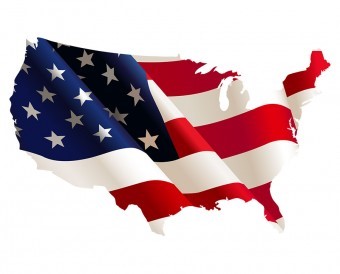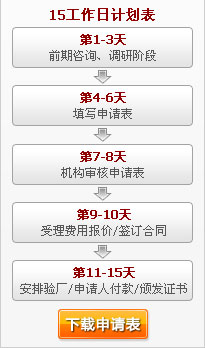市场趋势:美国犹太Kosher和清真Halal认证食品

MarketTrend: Kosher- and Halal-Certified
Foods in the U.S. delivers an in-depth analysis of the market for kosher and
halal foods in the United States, with an emphasis on opportunities in the
mainstream market.
市场趋势:美国认证的犹太Kosher洁食和清真Halal食品,对Kosher和Halal食品的市场进行了深入分析,尤其是主流市场的机会。
The report discusses the many similarities
between kosher and halal foods:
Both involve dietary laws derived from
ancient sacred texts
Ritual slaughter emphasizes respect for the
animal
Forbidden ingredients include those derived
from human hair, bird feathers, and other unsavory sources that are acceptable
to U.S. government agencies
Standards for food production are far more
rigorous than those required by the U.S.
报告讨论了犹太Kosher和清真Halal食品的很多相似点:
二者涉及的饮食法都源自于古代经文;
屠宰仪式都强调尊重动物;
被禁止的成分包括那些来自人类的头发,鸟的羽毛和其他令人讨厌的美国政府机构能接受的来源。
Important differences are also addressed:
The Jewish population in the United States
is small - less than 2% - and is expected to decline, both in the U.S. and
worldwide.
A significant percentage of kosher
consumers in America are not Jewish. They buy kosher because they believe it is
safer, better, healthier.
Muslims represent less than 1% of the U.S.
population. Globally, on the other hand, one in five individuals practice the faith.
二者之间主要的不同点:
美国的犹太人口很少,不到2%,预计在美国和全世界都会下降;
在美国犹太Kosher食品的主要消费者不是犹太人,他们购买犹太Kosher食品是因为它更安全健康。
美国穆斯林不到总人口的1%,但是在全球有五分之一的人信仰伊斯兰。
"Halal" applies to all facets of
Islamic life, from banking to toothpaste.
Americans are largely unaware of the halal
concept and its attractive attributes pertaining to food.
“清真”适用于伊斯兰生活的所有方面,从银行到牙膏。
很多美国人不知道清真Halal的概念及清真Halal食品的吸引力。
In MarketTrend: Kosher- and Halal-Certified
Foods in the U.S., Packaged Facts maintains that the number of mainstream
products that have obtained kosher certification has reached critical mass, and
so has the share of consumers who deliberately seek out kosher foods. As for
halal, few Americans have even heard of it. In order to grow these markets,
companies must educate consumers about the benefits that define these foods and
third-party certification thereof.
市场趋势:犹太Kosher和清真Halal认证食品在美国,Packaged
Facts认为,获得犹太Kosehr认证的主流产品的数量已达到临界数量,刻意去寻求犹太Kosher食品的消费者的份额。 至于清真Halal,很多的美国人都没听过。 为了发展这些市场,公司必须教育消费者了解这些食品的好处及其第三方认证。
Among the most promising prospects:
The large number of consumers who are
concerned about food safety and are skeptical about food labeling
Those on gluten-free or meatless diets
"Foodies"
Asian Americans, who eat less dairy and
drink less alcohol compared to the overall U.S. population
Those who practice ethical consumerism
其中最有前景的是
大量的更加关注食品安全和对食品标签的怀疑的消费者;
那些无麸质或不含肉的饮食;
“美食家”;
亚裔美国人,与美国整体人口相比,饮食较少,饮酒少;
那些实践伦理消费主义的人。
——
The kosher foods market has many facets and
no definitive parameters, so accurate sales data are difficult to come by.
Packaged Facts employs innovative methodologies to unravel the complexities of
the market. By synthesizing information from government agencies, syndicated
research services, and interviews with industry executives and consumers,
Packaged Facts is able to provide sales data for the diverse segments of the
market for certified kosher foods.
Specifically, Packaged Facts estimates that
sales of certified kosher foods swelled from nearly $150 billion in 2003 to
more than $200 billion in 2008, demonstrating a compound annual growth rate
twice that of the overall food market. The increase is largely attributable to
the rising number of certified products, as well as a growing number of
consumers who deliberately seek out kosher foods. Packaged Facts does not see
traditional or "ethnic" kosher foods contributing to market growth.
犹太Kosher食品市场有许多方面,没有确定的参数,因此很难获得准确的销售数据。 包装事实采用创新的方法来解开市场的复杂性。 Packaged Facts通过综合来自政府机构,银团研究服务以及对行业管理人员和消费者的采访的信息,能够为认证的犹太Kosher食品的市场的不同部分提供销售数据。
具体来说,Packered Facts估计,认证的犹太Kosher食品的销售从2003年的近1500亿美元猛增到2008年的超过2000亿美元,这表明复合年增长率是整个食品市场的两倍。 增加主要是由于认证产品数量的增加,以及越来越多的消费者故意寻找犹太Kosher食品。Packaged Facts并没有看到传统或“种族”的犹太Kosher食品有助于市场增长。
Packaged
Facts forecasts the total market for certified kosher food will approach $260
billion, while sales of products that are purchased
because they are kosher will fall between $14 billion (low estimate) and $17
billion (high estimate).
Because the concept of a market for certified
halal foods is a fairly new phenomenon, Muslims compose a very small share of
the U.S. population, and many of the countries that are home to large Muslim
populations have just begun to monitor and quantify sales, hard data are
virtually nonexistent. In MarketTrend: Kosher- and Halal-Certified Foods in the
U.S., Packaged Facts examines all of the available data to draw a portrait of
Muslims in the U.S, as followers of Islam, as Americans, and as consumers.
No other market research report provides the
comprehensive analysis, extensive data, and unique insights on the similarities
and differences in these two traditions of faith-based consumption. In
particular, Packaged Facts analyzes opportunities for U.S. kosher and halal
food producers to target mainstream Americans as well as promising niches like
Asian Americans, ethical consumers, and "foodies."
Packaged Facts预测,认证的犹太Kosher食品的总市场将接近2,600亿美元,而因为他们是Kosher而购买的产品的销售将在140亿美元(低估)和170亿美元(高估)之间。
因为认证清真Halal食品市场的概念是一个相当新的现象,穆斯林在美国人口中占很小比例,许多拥有大量穆斯林人口的国家刚刚开始监测和量化销售,确实的数据实际上不存在。Packaged Facts审查的所有可用数据画了一个美国穆斯林、穆斯林、美国人和消费者的图表。没有其他市场研究报告提供独到的见解与综合分析,广泛的数据,在基于信仰的消费这两种传统的异同。特别是,Packaged Facts分析美国犹太Kosher和清真Halal食品生产商面向主流美国人以及有前途的小众市场,如亚裔美国人,道德消费者和“美食家”。



 微信咨询:
微信咨询:
 电话咨询:
电话咨询: